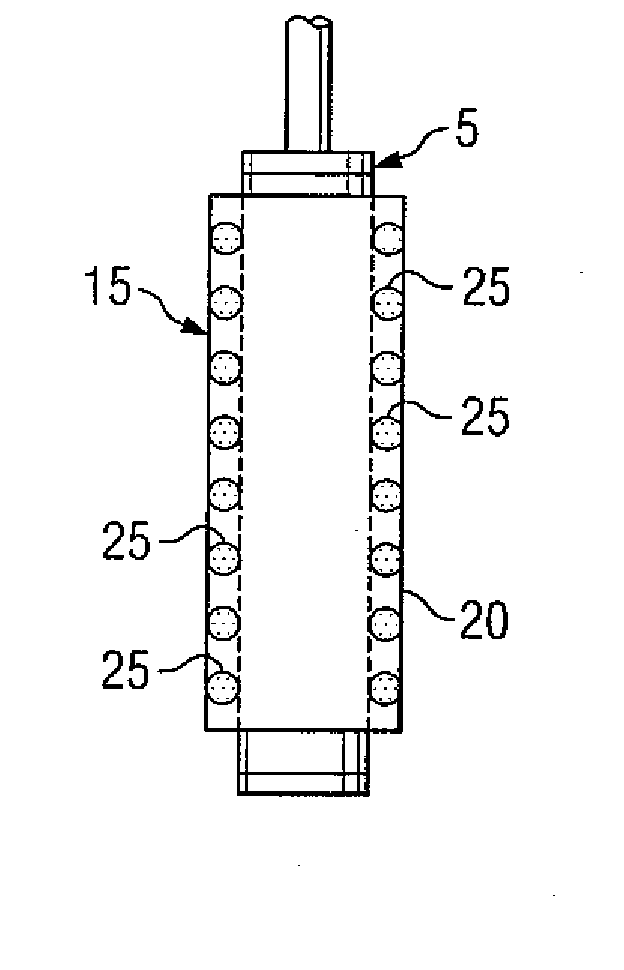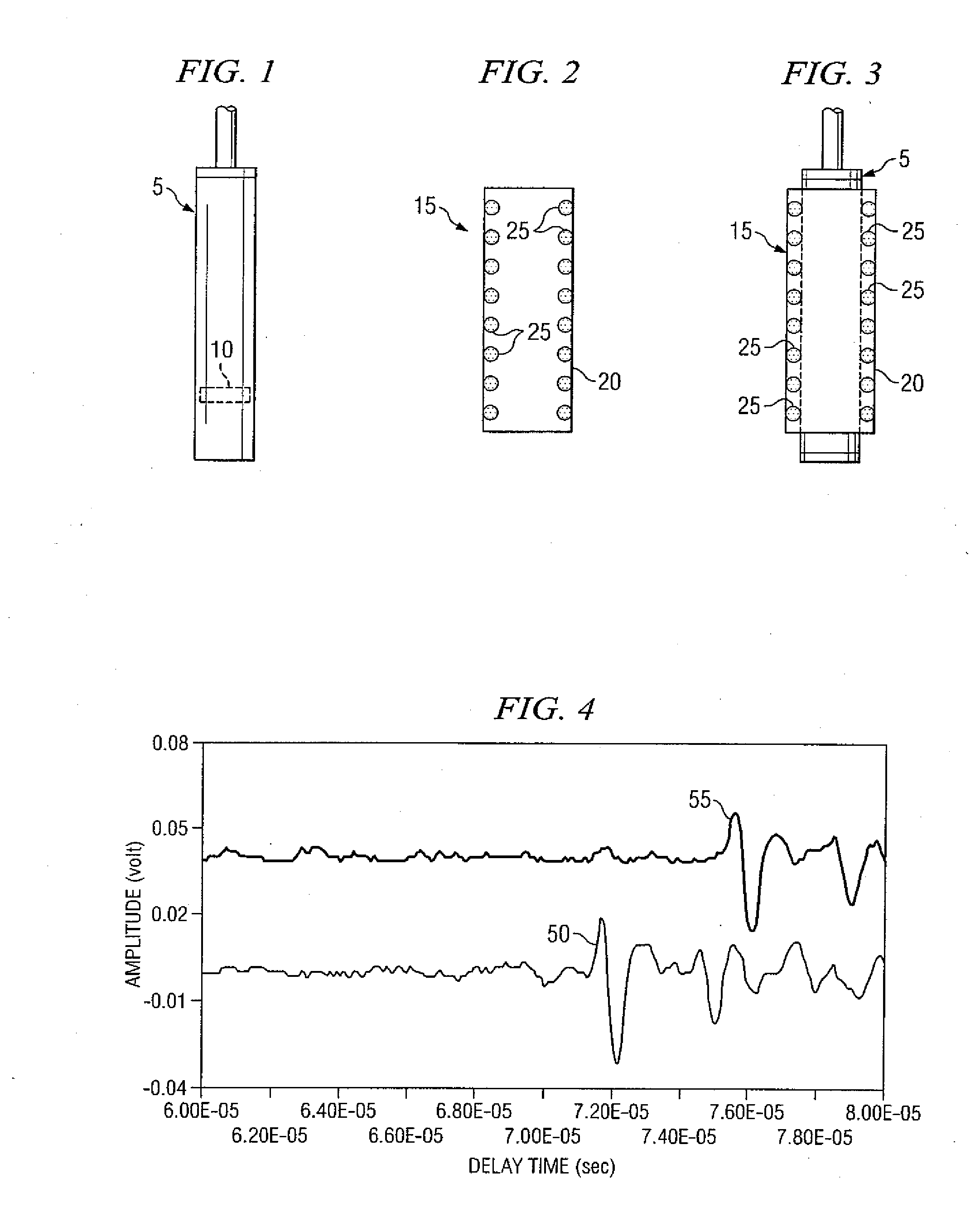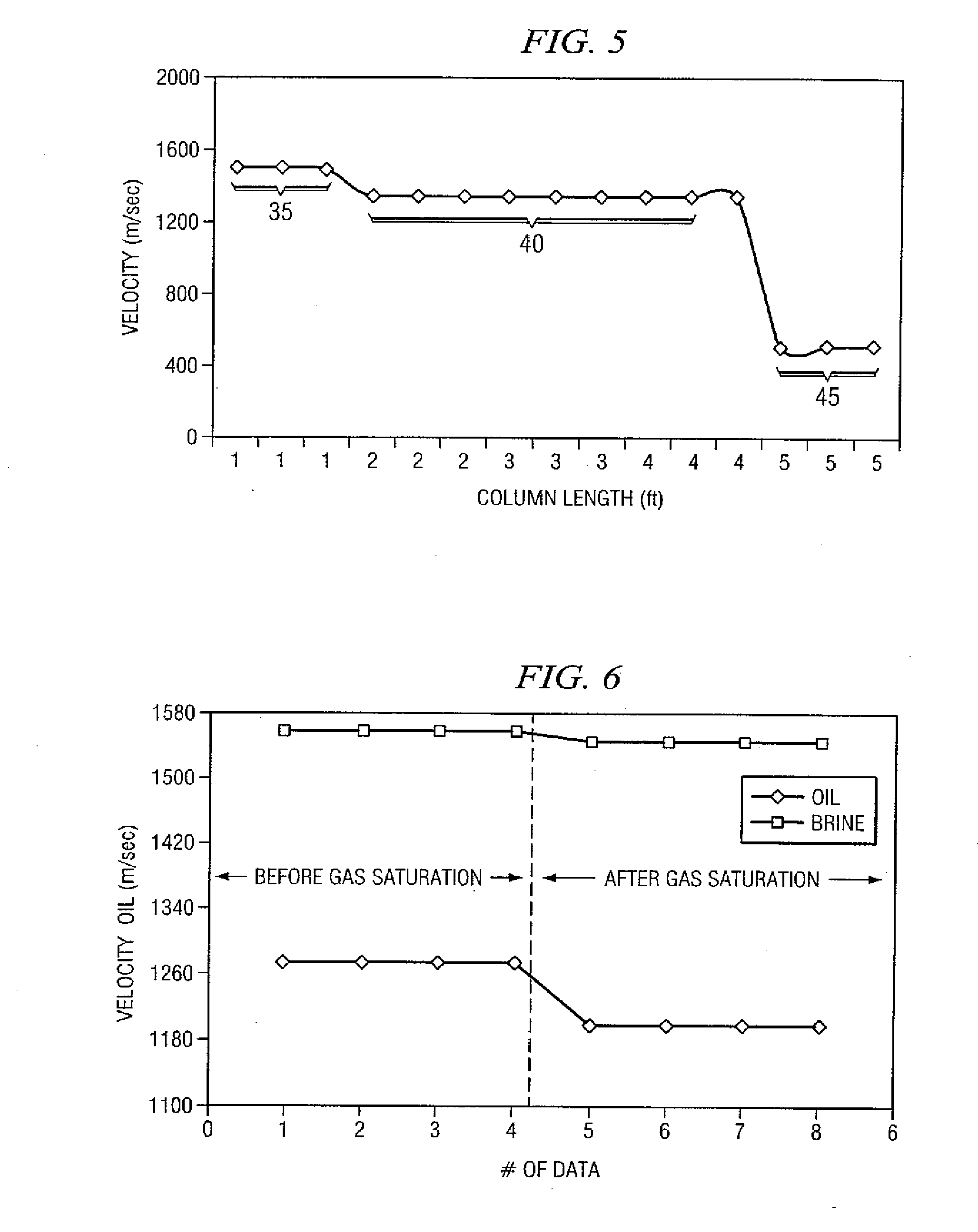Testing of bottomhole samplers using acoustics
a sampler and bottomhole technology, applied in the field of hydrocarbon samples testing, can solve the problems of curtail production operations, asphaltenes tend to have a more complex chemical nature than wax and form, and subsequent disruption of the intermolecular balance needed
- Summary
- Abstract
- Description
- Claims
- Application Information
AI Technical Summary
Benefits of technology
Problems solved by technology
Method used
Image
Examples
Embodiment Construction
[0011] These and other needs in the art are addressed in one embodiment by a system for testing a fluid, wherein the fluid is disposed within a sample container. The system comprises at least one set of acoustic sensors, wherein the acoustic sensors are disposed about the sample container in a configuration comprising at least one configuration selected from the group consisting of radial and longitudinal, and wherein the at least one set of acoustic sensors generates at least one acoustic signal having a velocity through the fluid. The system farther comprises a means for recording and interpreting at least one acoustic signal generated by at least one set of acoustic sensors, wherein the velocity of the at least one acoustic signal indicates information about the fluid system.
[0012] In another embodiment, the present invention comprises an apparatus for testing a hydrocarbon sample. The apparatus comprises a sheath disposed about the hydrocarbon sample. In addition, the apparatus...
PUM
| Property | Measurement | Unit |
|---|---|---|
| frequency | aaaaa | aaaaa |
| frequency | aaaaa | aaaaa |
| frequency | aaaaa | aaaaa |
Abstract
Description
Claims
Application Information
 Login to View More
Login to View More - R&D
- Intellectual Property
- Life Sciences
- Materials
- Tech Scout
- Unparalleled Data Quality
- Higher Quality Content
- 60% Fewer Hallucinations
Browse by: Latest US Patents, China's latest patents, Technical Efficacy Thesaurus, Application Domain, Technology Topic, Popular Technical Reports.
© 2025 PatSnap. All rights reserved.Legal|Privacy policy|Modern Slavery Act Transparency Statement|Sitemap|About US| Contact US: help@patsnap.com



